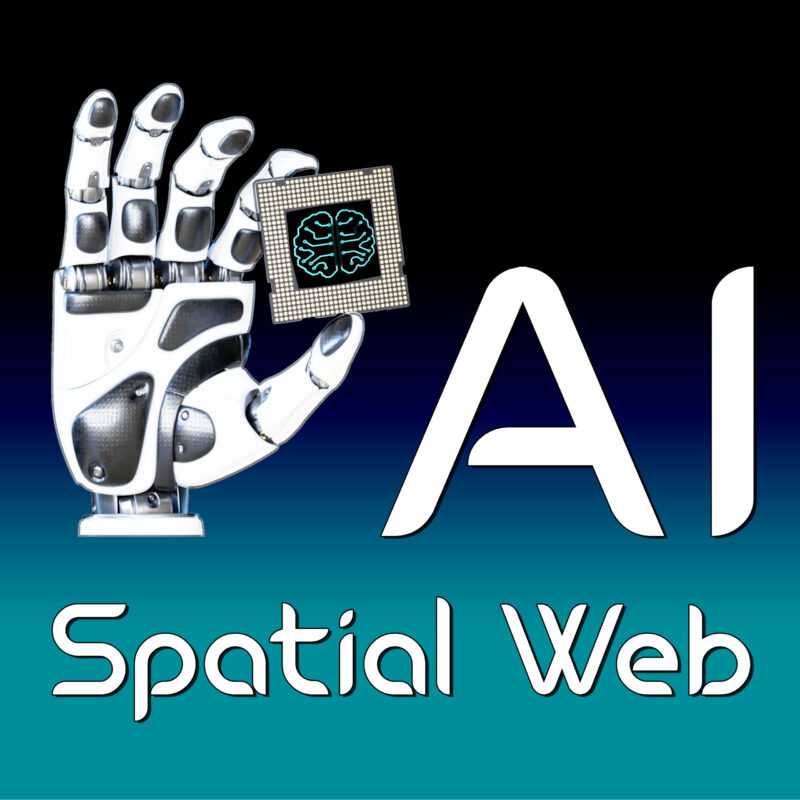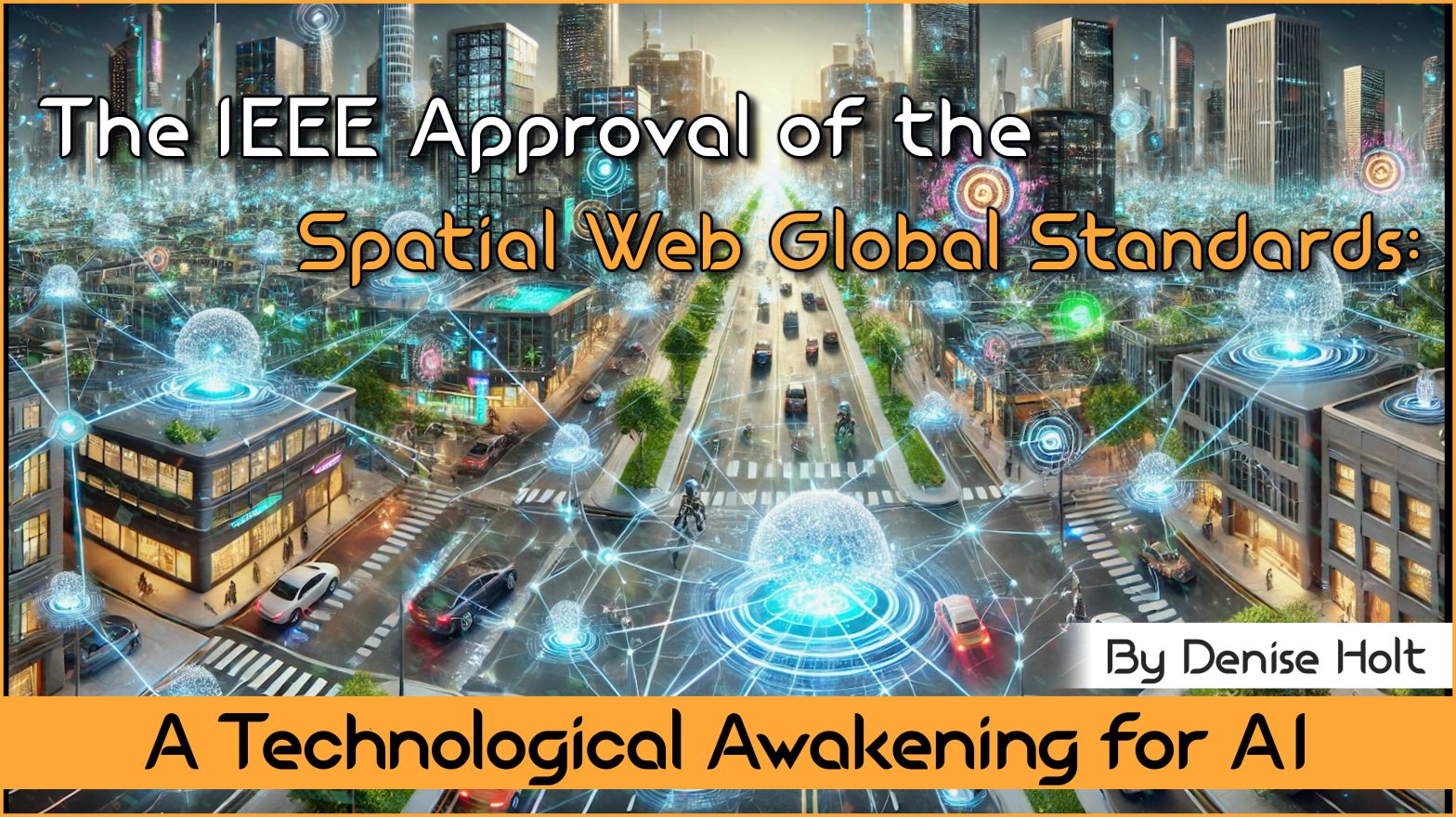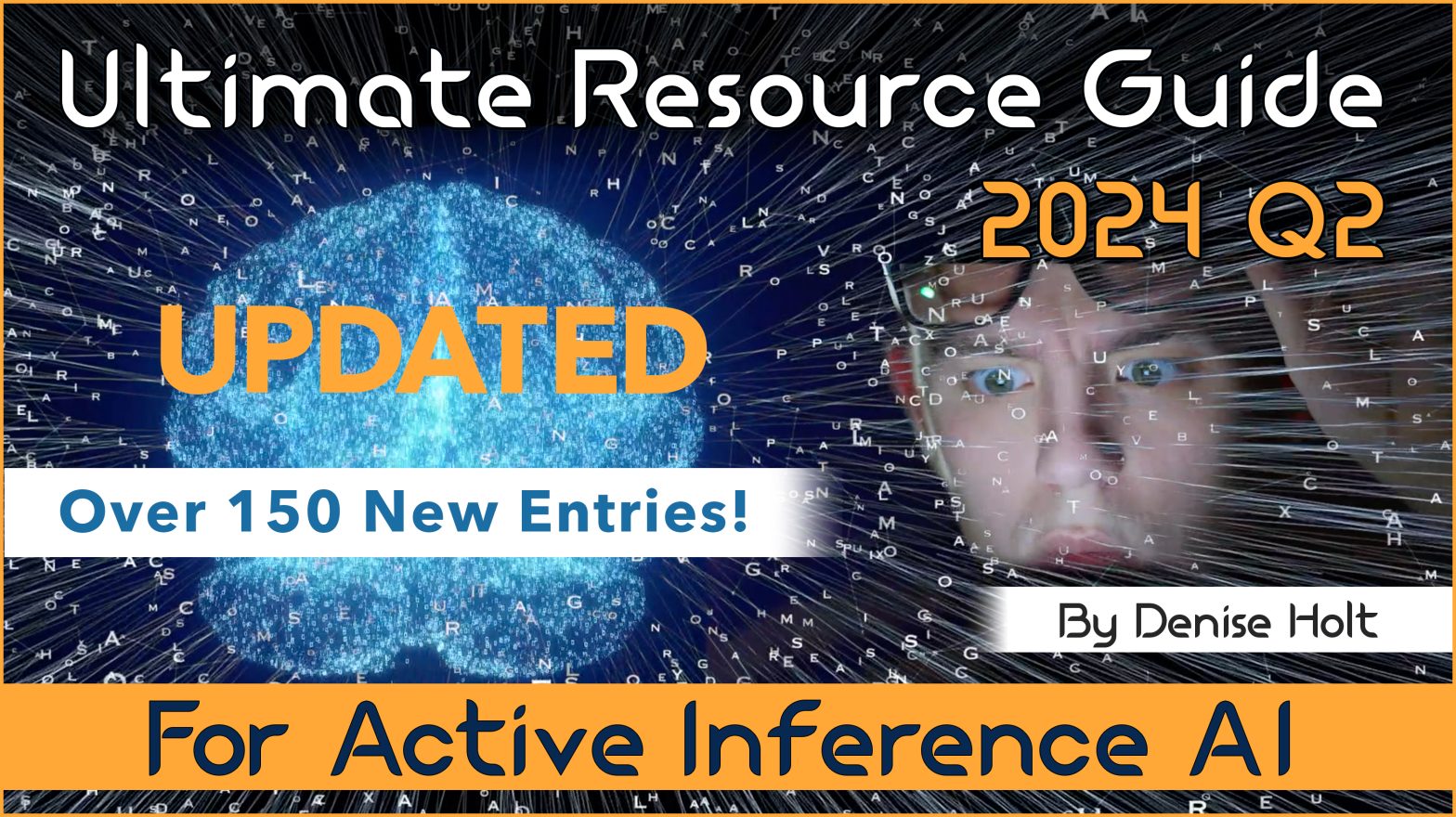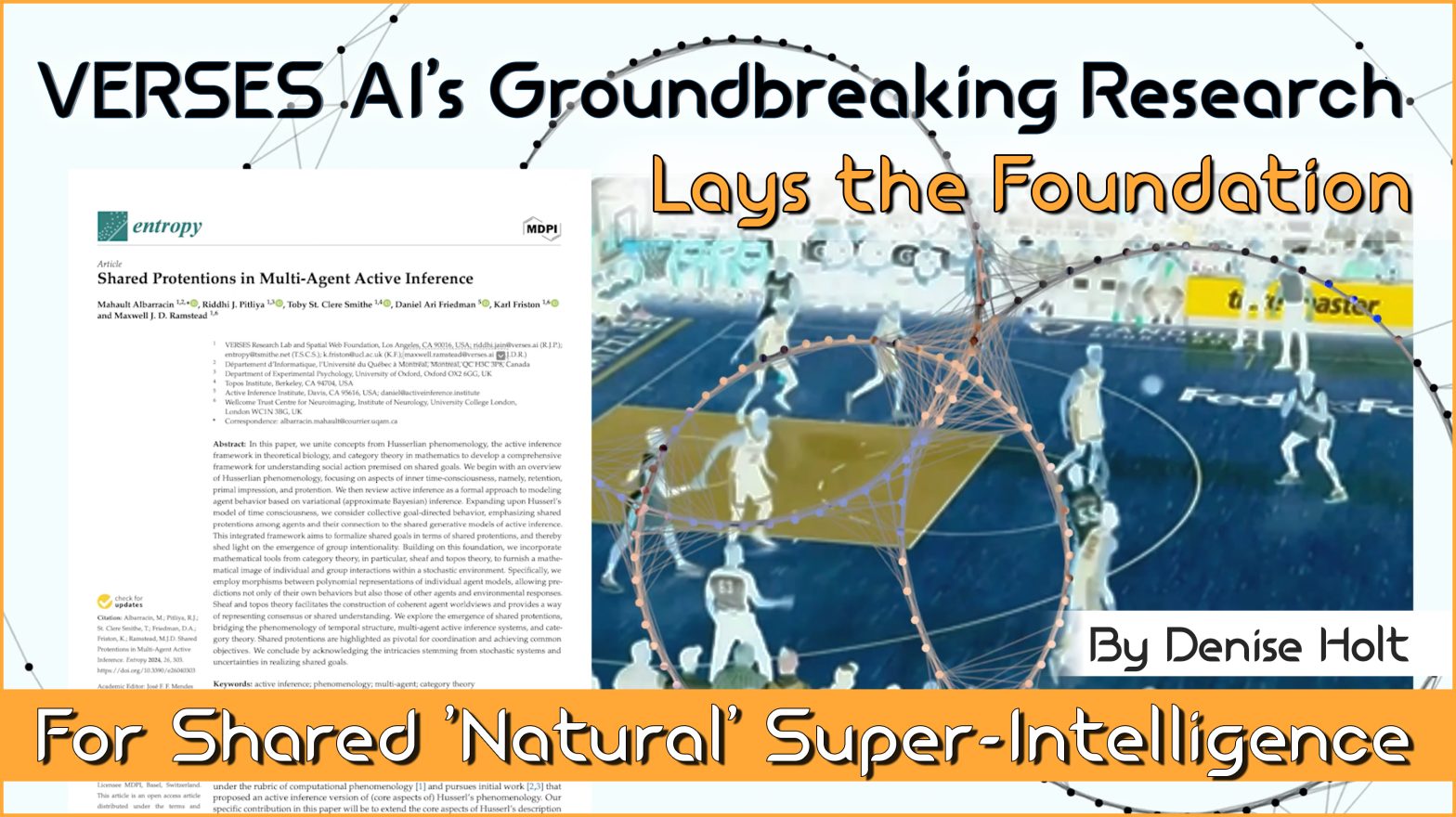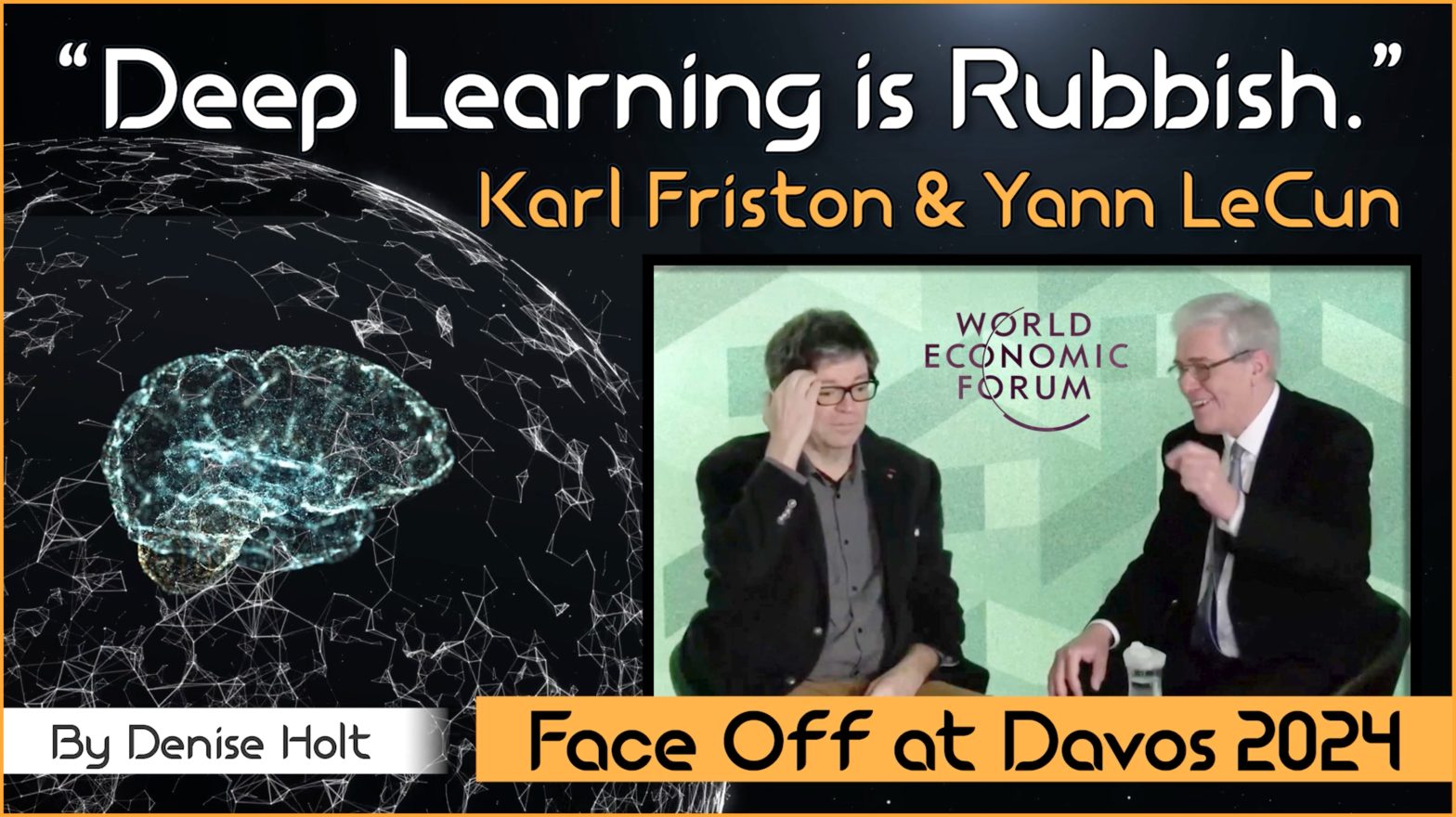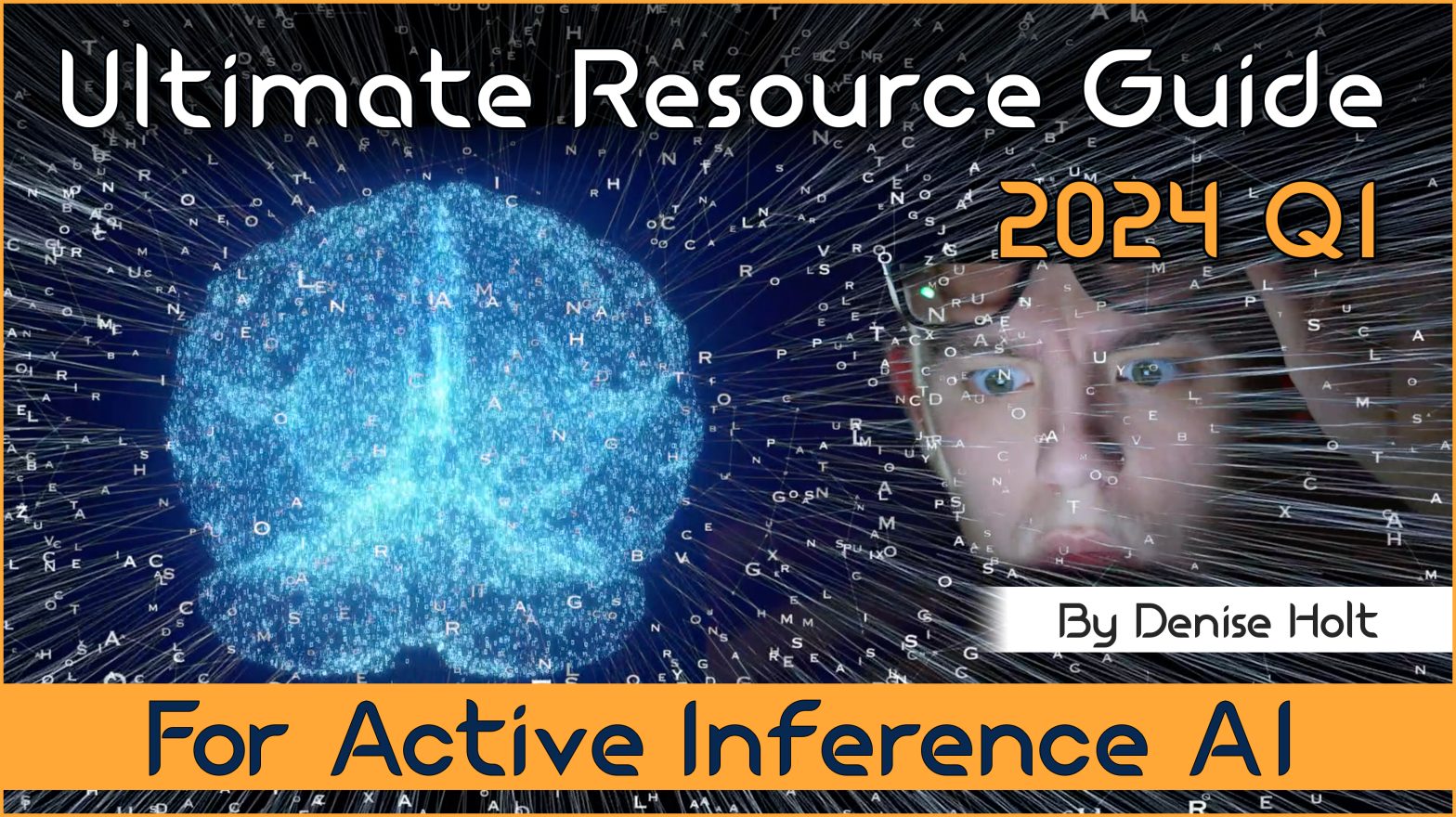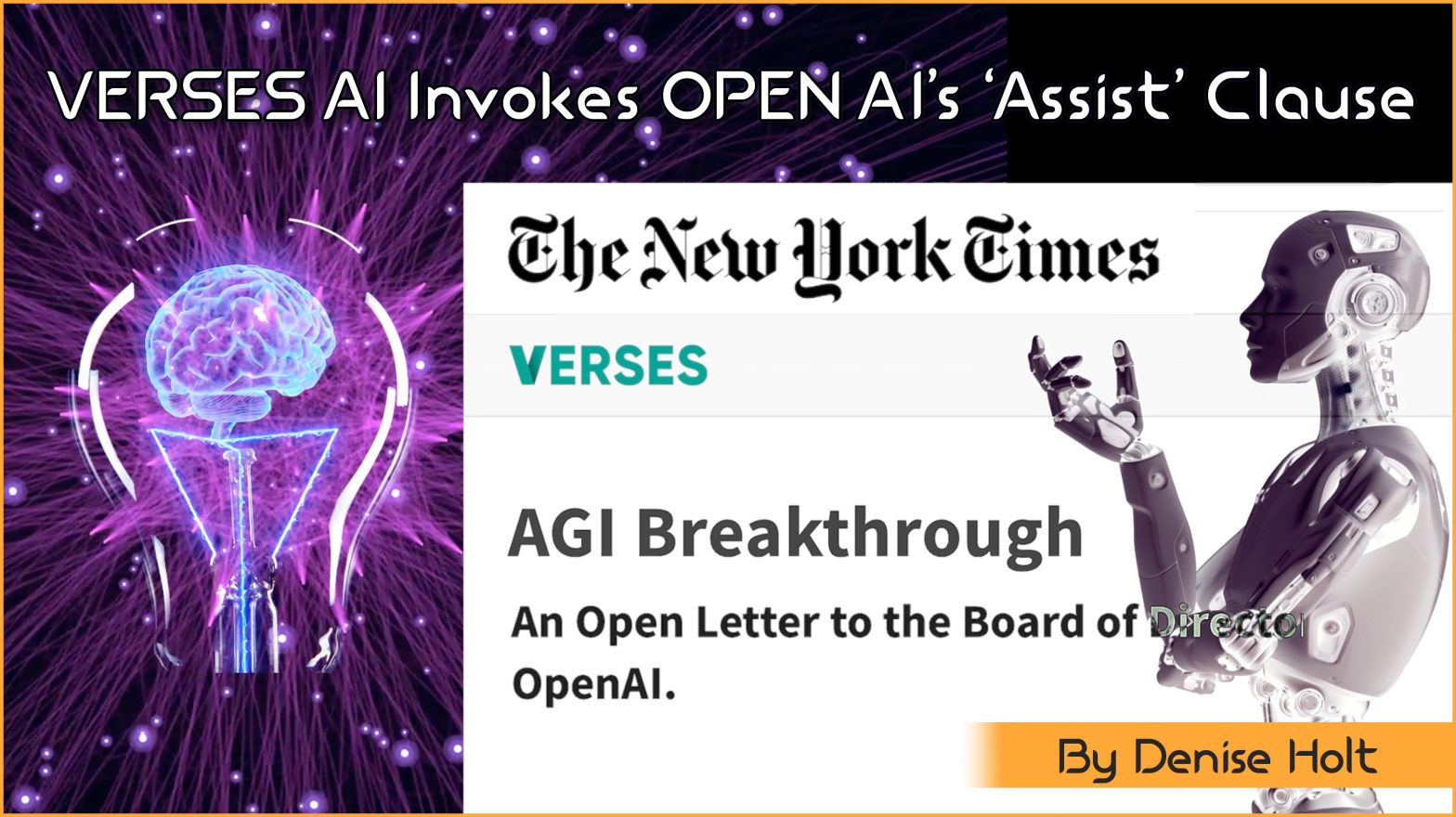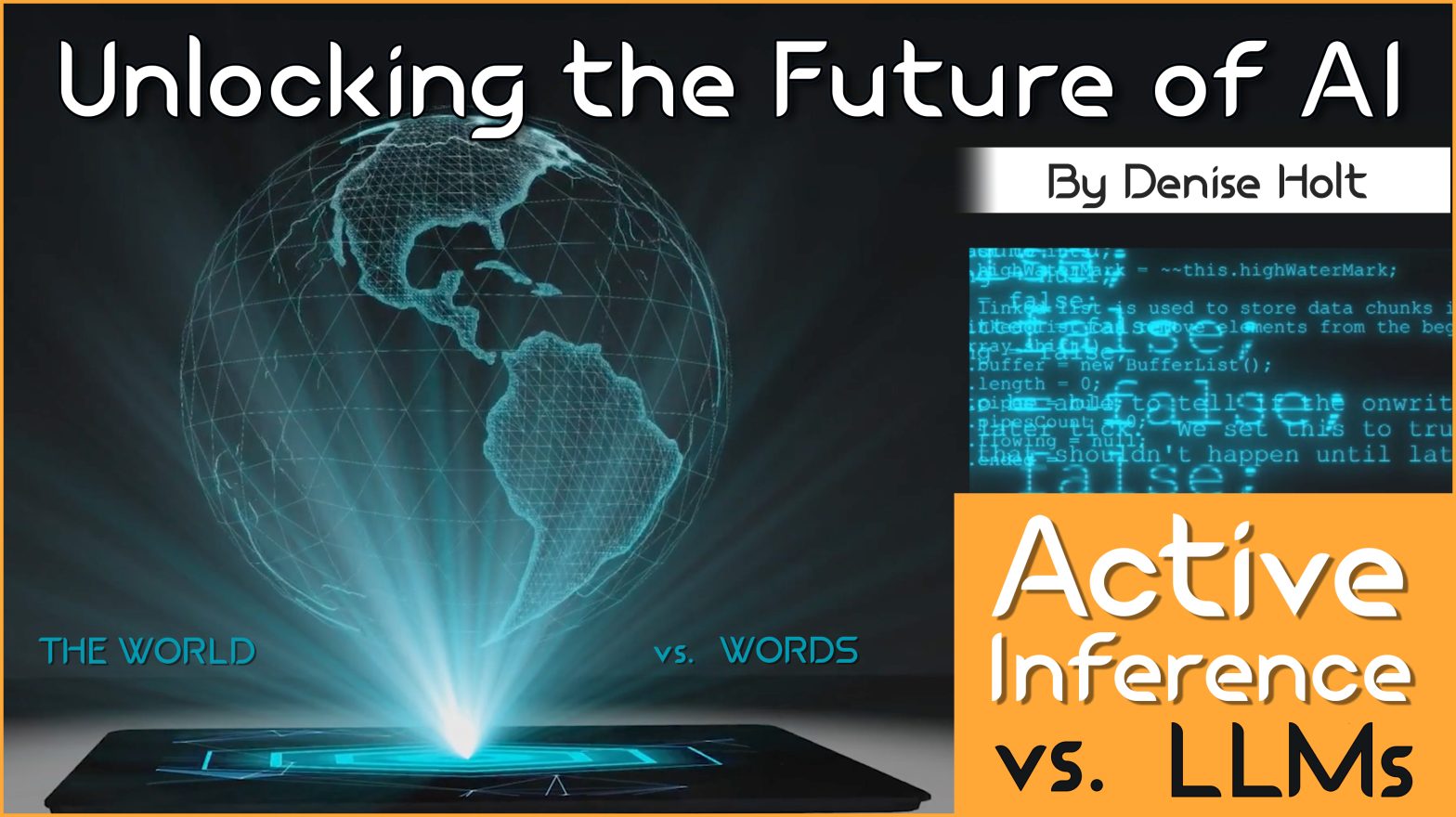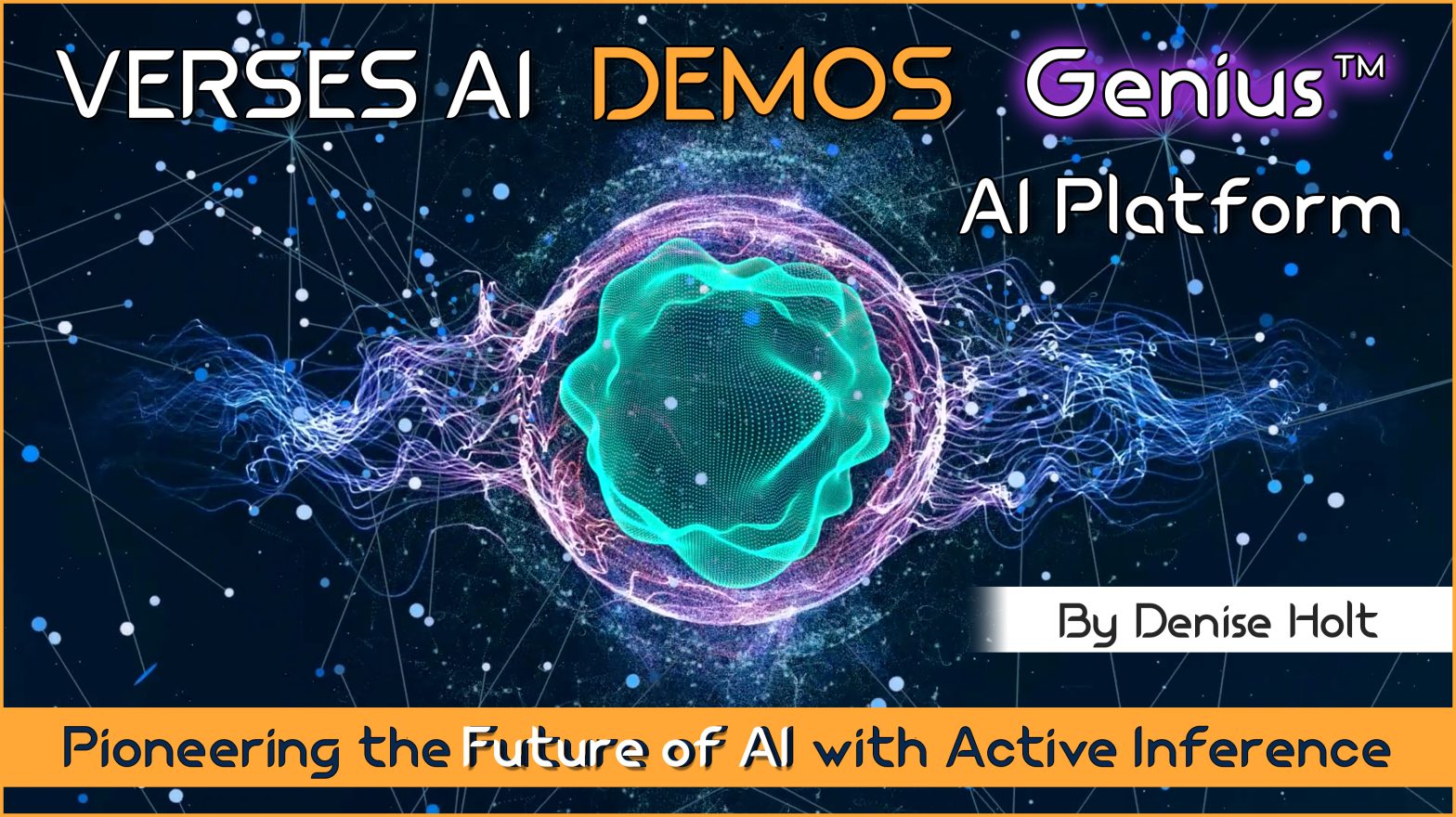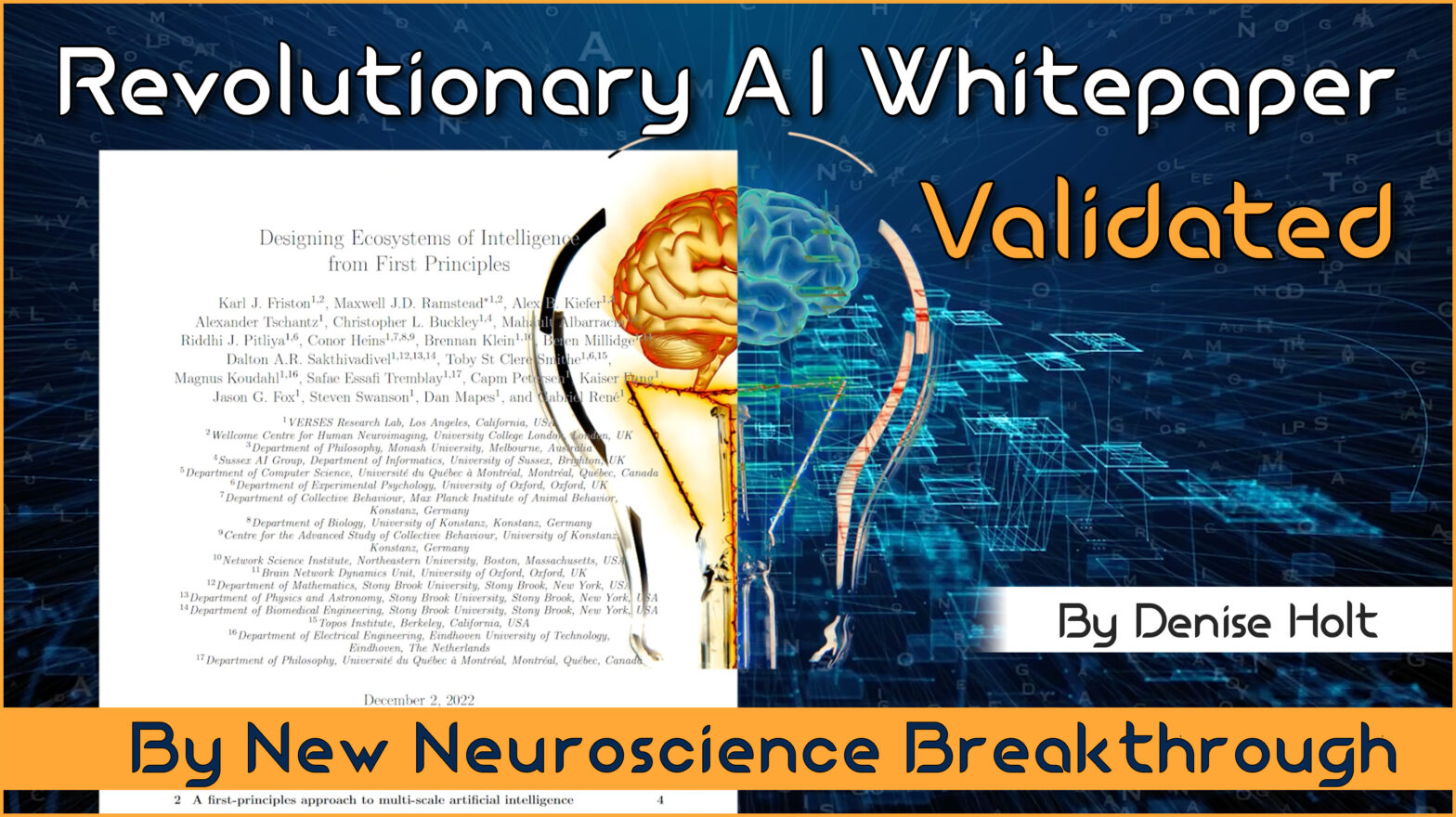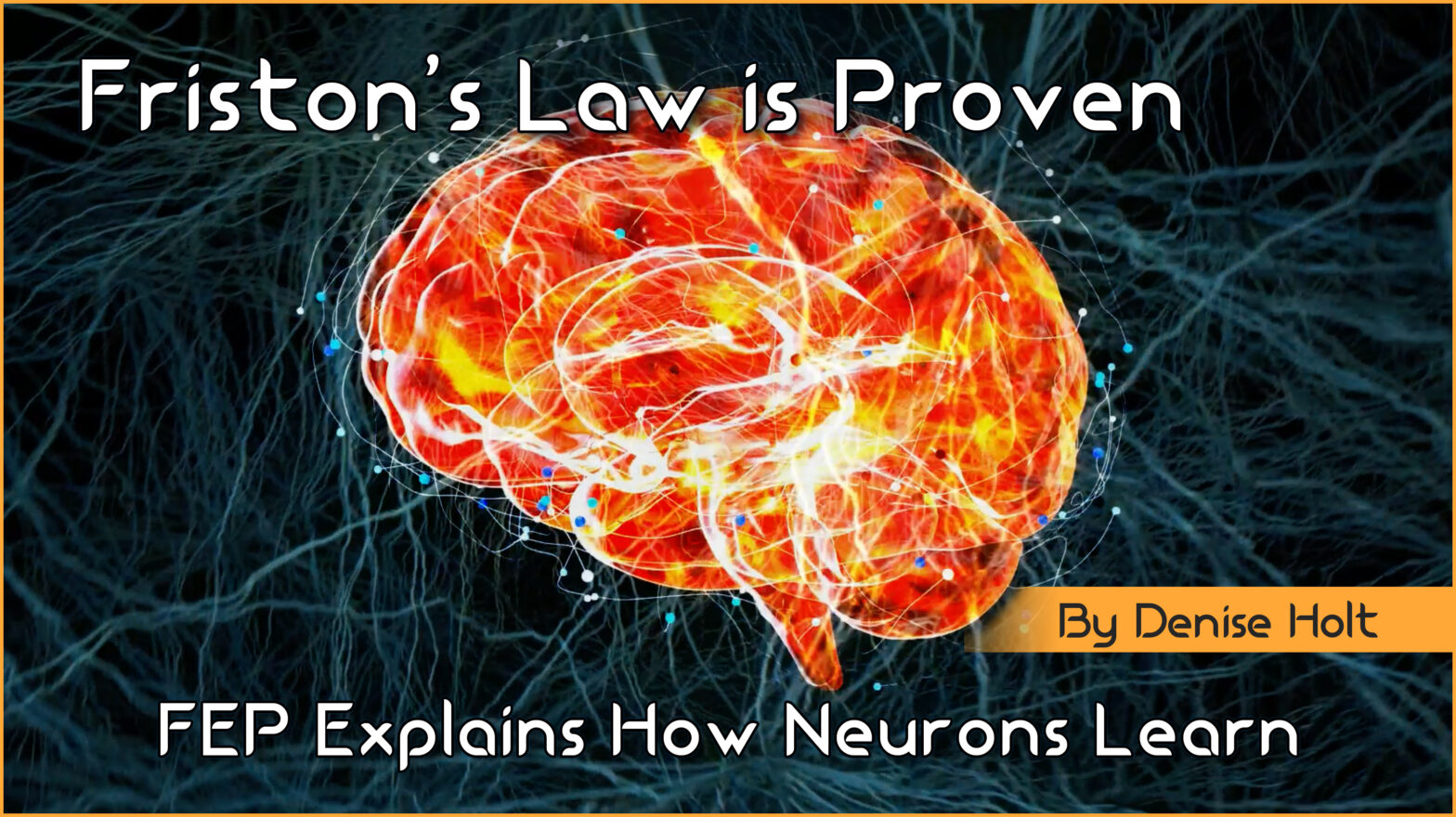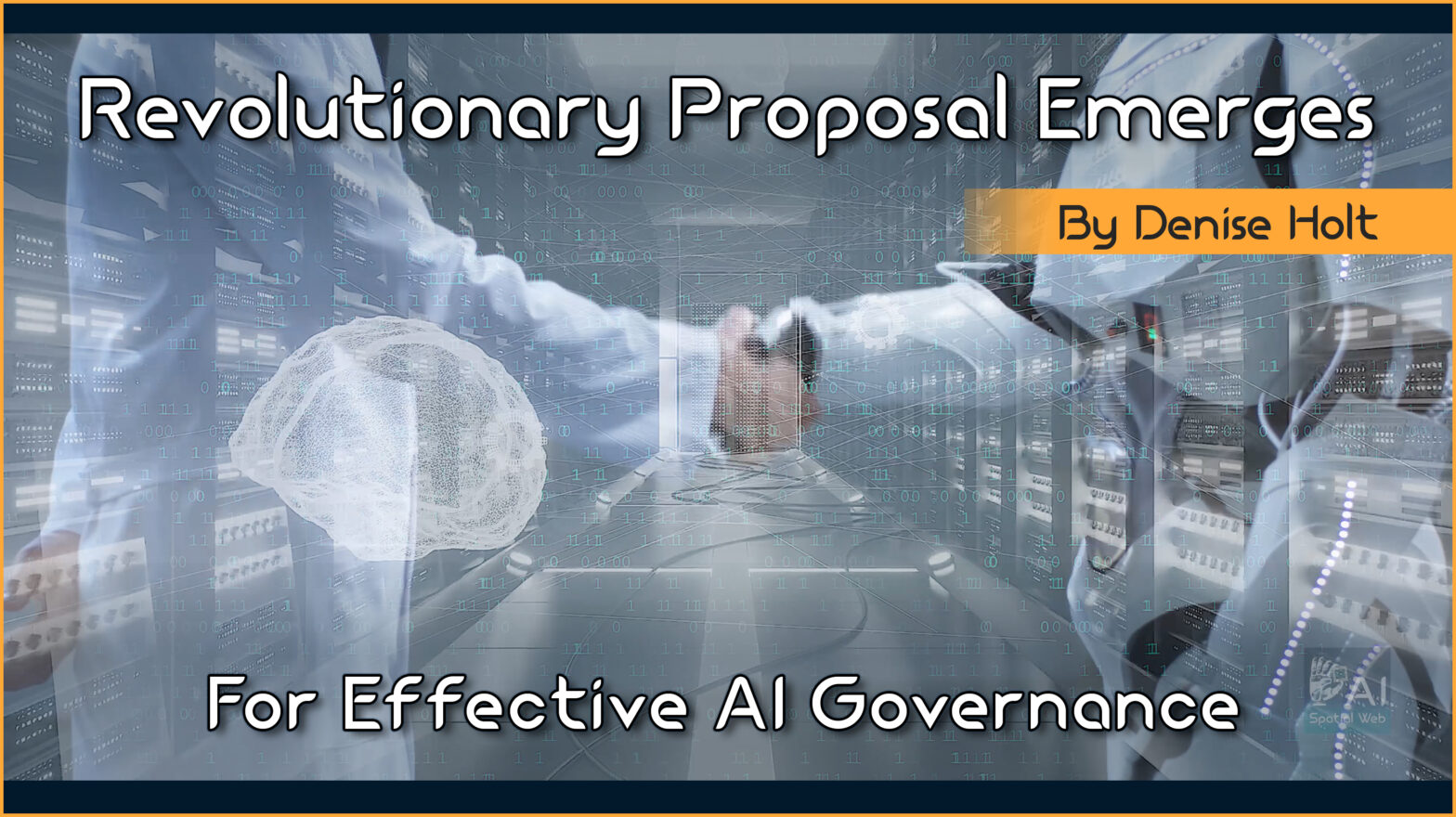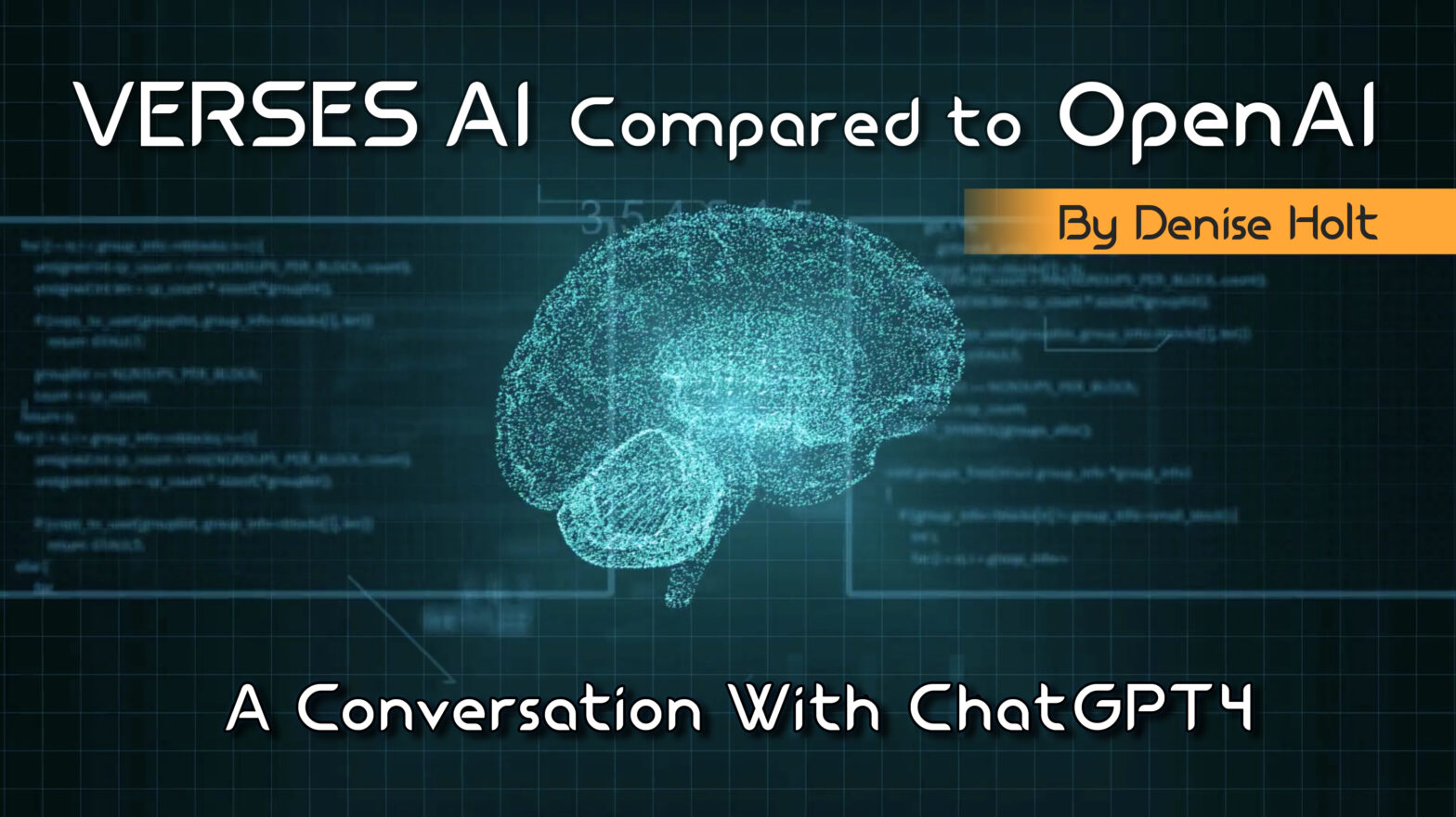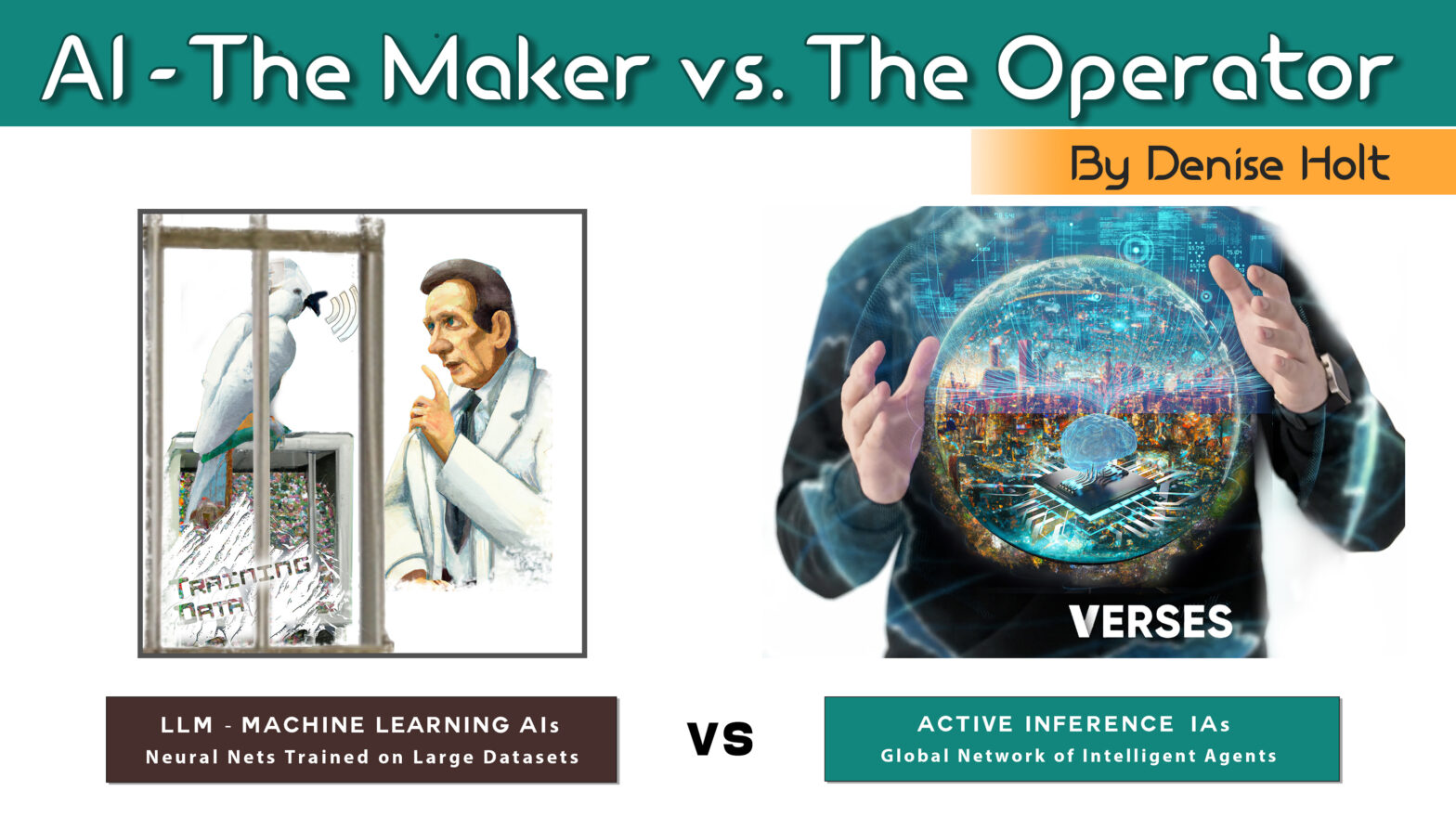VERSES AI is transforming AI, shifting us towards First Principles AI, Embodied AI, and Decentralized AI, distributing AI compute to Edge devices.
Category: Blog Articles
The Ultimate Resource Guide for Active Inference AI | 2024 Q2 Update
Updated – Over 150 New Entries for 2024 Q2 – Research papers, articles, videos, who to follow, and more! The Most Complete Repository of Research Links and Educational Content on the VERSES AI Technology & Active Inference AI
This group of leaders came together to to discuss a letter signed by 25 neuroscientists, biologists, physicists, policy makers, AI researchers, entrepreneurs, and directors of research labs on a joint initiative proposing a radical rethinking of AI’s trajectory, advocating for a model of AI that is fundamentally different from the data-intensive, computationally expensive systems that dominate today’s landscape.
Their meeting signifies growing momentum behind a new approach to AI called Active Inference, developed by world renowned neuroscientist, Dr. Karl Friston, Chief Science Officer at VERSES AI, that leads to more transparent, ethical and beneficial intelligent systems.
VERSES AI’s Groundbreaking Research Lays the Foundation for Shared ‘Natural’ Super-Intelligence
VERSES AI has unveiled a groundbreaking framework that “sets the stage” for ASI, and could have profound implications for the future of AI and human-machine cooperation.
“Deep Learning is Rubbish” — Karl Friston & Yann LeCun Face Off at Davos 2024 World Economic Forum
In a panel hosted by the Financial Times at the World Economic Forum in Davos, Switzerland, two of the biggest names in artificial intelligence — Dr. Karl Friston of VERSES AI, and Dr. Yann LeCun of Meta — discussed their aligned, yet contrasting visions for the future of AI, with Friston proclaiming, “Deep Learning is Rubbish,” with Yann LeCun asserting, “The future of AI is non-generative.”
The Ultimate Resource Guide for Active Inference AI | 2024 Q1
The Most Complete Repository of Research Links and Educational Content on the VERSES AI Technology & Active Inference AI
This group of leaders came together to to discuss a letter signed by 25 neuroscientists, biologists, physicists, policy makers, AI researchers, entrepreneurs, and directors of research labs on a joint initiative proposing a radical rethinking of AI’s trajectory, advocating for a model of AI that is fundamentally different from the data-intensive, computationally expensive systems that dominate today’s landscape.
Their meeting signifies growing momentum behind a new approach to AI called Active Inference, developed by world renowned neuroscientist, Dr. Karl Friston, Chief Science Officer at VERSES AI, that leads to more transparent, ethical and beneficial intelligent systems.
Hello 2024 — The Year Computing Changes Forever
Computing is changing on every basic and fundamental level. Generative AI is one piece of that computing puzzle. It’s a massive tool in this next era, but it’s not the framework for the computing, itself. What VERSES is building IS that framework.
Turning Point in AI - Leaders Rally for a Natural AI Initiative
A pivotal roundtable discussion held by the Boston Global Forum, the Active Inference Institute, and the Neuropsychiatry and Society Program on December 12, 2023, marked a significant turning point in our understanding and development of artificial intelligence.
This group of leaders came together to to discuss a letter signed by 25 neuroscientists, biologists, physicists, policy makers, AI researchers, entrepreneurs, and directors of research labs on a joint initiative proposing a radical rethinking of AI’s trajectory, advocating for a model of AI that is fundamentally different from the data-intensive, computationally expensive systems that dominate today’s landscape.
Their meeting signifies growing momentum behind a new approach to AI called Active Inference, developed by world renowned neuroscientist, Dr. Karl Friston, Chief Science Officer at VERSES AI, that leads to more transparent, ethical and beneficial intelligent systems.
VERSES AI Announces AGI Breakthrough: Invokes Open AI’s ‘Assist’ Clause
In an unprecedented move by VERSES AI, today’s announcement of a breakthrough revealing a new path to AGI based on ‘natural’ rather than ‘artificial’ intelligence, VERSES took out a full page ad in the NY Times with an open letter to the Board of Open AI appealing to their stated mission “to build artificial general intelligence (AGI) that is safe and benefits all of humanity.”
Unlocking the Future of AI: Active Inference vs. LLMs – The World vs. Words
In a world where AI reigns supreme, there is a question looming among the tech elite: Are we on the cusp of true intelligence, or are we merely toying with sophisticated text generators? As we marvel at the prowess of Large Language Models (LLMs) like ChatGPT, Claude, and others, it’s time to investigate a bit further and seek answers. Beyond the hype and fascination, lies a catalyst for change and remarkable innovation, fundamentally redefining what AI means: Active Inference AI.
VERSES AI Demos ‘Genius™’ AI Platform: Pioneering the Future of AI with Active Inference
“What you’re about to see is akin to, I believe, a moment like the launch of the first rocket or the Kitty Hawk moment…So I want you to think about that moment when you first saw something completely new in technology.”
– Gabriel Rene, CEO VERSES AI
…Artificial intelligence is at a critical juncture in its evolution, and today’s LIVE demonstration of VERSES AI’s “Genius™” AI platform showcases a promising new direction for the field. In this presentation, CEO Gabriel Rene and his team provided a first look at how Genius™ is redefining the future of AI through its innovative approach rooted in Active Inference, First Principles AI, and Shared Intelligence.
Revolutionary AI Whitepaper Validated by New Neuroscience Breakthrough
In December 2022, VERSES AI set forth a sweeping vision for artificial intelligence based on a distributed, collective real-time knowledge graph, comprised of Intelligent Agents operating on the physics of intelligence itself. In their whitepaper, titled “Designing Ecosystems of Intelligence from First Principles,” they propose a profound departure from standard notions of AI as a monolithic system. This groundbreaking new artificial intelligence paradigm is gaining momentum, thanks to a major discovery proving its underlying scientific theory – the Free Energy Principle (FEP) by the world’s most cited neuroscientist, Dr. Karl J. Friston.
Friston’s AI Law is Proven: FEP Explains How Neurons Learn
Dr. Karl J. Friston is the most cited neuroscientist in the world, celebrated for his work in brain imaging and physics inspired brain theory. He also happens to be the Chief Scientist at VERSES AI, working on an entirely new kind of AI called Active Inference AI, based on the Free Energy Principle (FEP) — Karl’s theory that has just been proven by researchers in Japan to explain how the brain learns.
“Our results suggest that the free-energy principle is the self-organizing principle of biological neural networks.”
– Takuya Isomura, RIKEN
Revolutionary Proposal Emerges for Effective AI Governance
In the groundbreaking report, “The Future of Global AI Governance”, VERSES AI offers the framework for an ethical and cooperative path forward for AI and humans to grow in tandem with each other, learning, adapting, and adjusting as needed along the way.
VERSES AI Compared to OpenAI | A Conversation With ChatGPT4
In a mere three question conversation with ChatGPT4, the OpenAI bot provided a solid basis for understanding the greatest issues facing Machine Learning LLMs, the advantages of Active Inference AI over LLMs, and the way in which the next evolution of the internet protocol, the Spatial Web, when combined with Active Inference AI, can function as a nervous system for a company, city, or even larger systems.
AI – The Maker vs. the Operator, LLM vs Active Inference
VERSES AI has overcome the limitations of machine learning AI, by building a new kind of artificial intelligence based on a real-time world model described as:
“AI that grows in knowledge, perception, and awareness through the evolving real-time data produced by all things, at all times, throughout our living, breathing, and ever-changing world.”
This is Active Inference AI, an entirely new type of networked AI that is designed for Real-Time Operations, including things like managing the daily operations of a hospital, an airport, global supply chains, an entire smart city, global drone and autonomous vehicle traffic, and other real-world activities.
